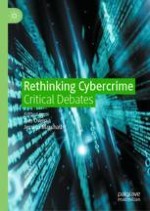2021 | OriginalPaper | Buchkapitel
The Criminalisation of Tools Under the Computer Misuse Act 1990. The Need to Rethink Cybercrime Offences to Effectively Protect Legitimate Activities and Deter Cybercriminals
verfasst von : Audrey Guinchard
Erschienen in: Rethinking Cybercrime
Aktivieren Sie unsere intelligente Suche, um passende Fachinhalte oder Patente zu finden.
Wählen Sie Textabschnitte aus um mit Künstlicher Intelligenz passenden Patente zu finden. powered by
Markieren Sie Textabschnitte, um KI-gestützt weitere passende Inhalte zu finden. powered by
